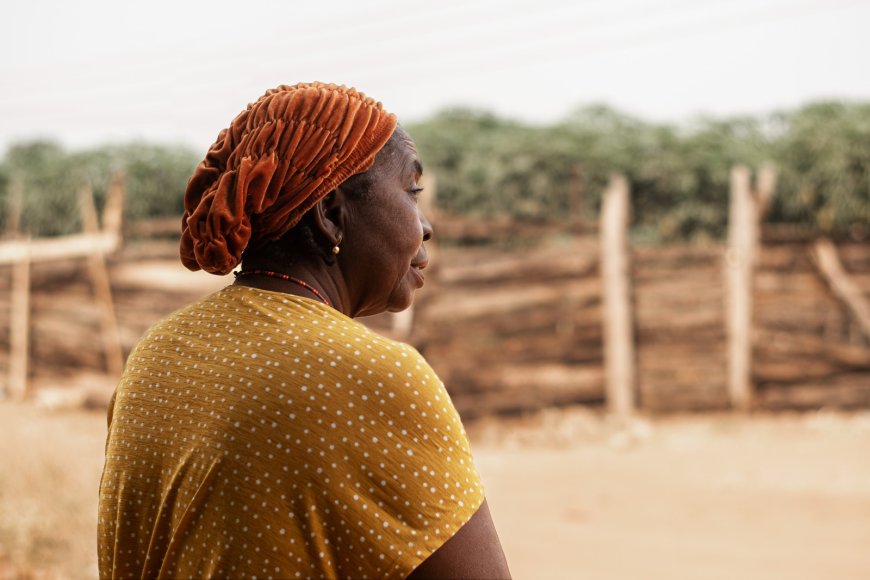FGM survivor recalls how the practice ended her dream of becoming a doctor

By Peter Ochieng
The World Health Organization (WHO) terms female genital mutilation (FGM) a harmful practice that affects 200 million women and girls alive today.
FGM has no health benefits, and it harms girls and women in many ways.
Caroline comes from the Kuria community in Migori County, which borders Tanzania. The Kuria is one of the Kenyan communities that still practice FGM, despite efforts to end it by 2030.
While growing up, she aspired to become a doctor. That is why she always put her best foot forward whenever it came to matters of education. All was going according to plan, with her good grades in primary pointing to a great future ahead.
But a negative turn of events occurred while she was in Standard 7. During the holiday, her grandmother planned for a female genital mutilation exercise against her knowledge and will.
The grandmother sent Caroline to her aunt’s place. There was nothing unusual about the trip since she always visited her aunt during the school holidays. However, this time around, it was about undergoing female genital mutilation.
Caroline forcefully underwent the act alongside her aunt’s daughter, which paints a picture of just how the grandmother and the aunt coordinated behind the scenes to ‘initiate them into womanhood.'
"I bled profusely, and I thought I would die," recalls Caroline. "The bleeding only stopped after I was taken to the hospital later on and received treatment."
She healed, but her life never remained the same. Before the ordeal, she was among the top performers in her class, but that dramatically changed after undergoing the cut.
"I tried my best but could not get good results because I was mentally disturbed after undergoing FGM." She sat for her Kenya Certificate of Primary Education (KCPE) exams, joined secondary school, and eventually got a D+ in the Kenya Certificate of Secondary Education (KCSE).
"I never expected to get such a low grade. I knew I could get a C+ or above, so I could qualify to join the university and become a doctor. That never happened! It really broke my heart. I blame FGM and the people who planned it on me. I hate and curse FGM. My prayer is that my children never undergo such."
She says that cultural beliefs in Kuria are behind parents or guardians pushing their daughters into FGM, because they believe that an ‘uncircumcised girl’ is not fit for marriage.
"After undergoing FGM, parents believe there is no need to pay school fees for you since you are ready to get married and you can fetch them bride price," she adds.
Looking back, she said her classmates who never went through FGM are doing better in life. "One is a teacher, while the other one is studying to become a nurse."

She says she is living in regret because people sat somewhere and made a regrettable decision about her life. Caroline, just like the Power to Youth Program, believes communities should abandon harmful cultural practices that hinder the social and economic progress of adolescent girls and young women.
The Power to Youth Consortium looks at amplifying youth voices and youth participation in creating change by ending FGM. "Ending FGM needs collective responsibility. If we cannot end FGM in this generation, then the generation to come will have much trouble. If we can end FGM and other harmful practices in this generation, then we are going to get a free, fair, and transformed society," says Vincent Mwita, Tunaweza Empowerment’s Programs Coordinator.
Mwita said that as much as men continue to come out advocating against FGM through the Men End FGM Movement, women and girls must be at the center of decision-making as far as fighting FGM is concerned.
Jane Agatha Wekesa, an inspector of police at Kehancha Police Station in Migori County, agrees with Mwita. "Curbing FGM is a challenge. The community needs to be enlightened to let go of this harmful culture. Let any girl know that FGM does not make her a better woman. If men take up their responsibility in the family, we will curb FGM," she stated.
The World Health Organization (WHO) estimates that 3 million girls and women are at risk of undergoing FGM every year. FGM has no health benefits, and it harms girls and women in many ways. Addressing violence against women remains a top priority as we push for a more equitable and safer world for everyone.
*The name has been changed to hide the identity of the survivor. The images used are also not a representation of the survivor.
What's Your Reaction?
































































































































































































































































































